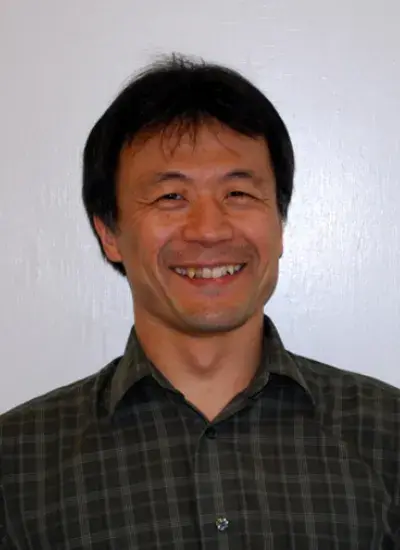HCII Seminar Series - Noboru Matsuda

Speaker
Noboru Matsuda
Associate Professor, Department of Computer Science, North Carolina State University
When
-
Where
Newell-Simon Hall 1305
Video
Panopto
Description
"Learning by Teaching a Synthetic Peer: Lessons Learned, Now, and Then"
A teachable agent (TA) coupled with an online learning environment where students learn to solve problems by interactively teaching the TA while receiving adaptive scaffolding is a unique implementation of an intelligent tutoring system. There is ample empirical evidence for the effect of learning by teaching in many different subjects and student populations. Many researchers in the field of AI in education have been actively engaged in advancing the theory of learning by teaching using advanced learning technologies. SimStudent, the teachable agent, was born in 2005 at HCII, originally as an intelligent authoring tool for cognitive tutors by demonstration. Since then, SimStudent has been used to study not only intelligent authoring, but also to advance the theory of human learning (www.SimStudent.org). In this talk, I will first provide an overview of SimStudent and the online learning environment for learning by teaching, called APLUS that has been applied to algebra equation solving. I will present lessons learned from a decade worth of empirical studies using APLUS to understand how and why students learn by teaching. I will then share our current research on learning by teaching where we study how students learn a complex web of algebra knowledge that involve both procedural and conceptual knowledge and their relations. We hypothesize that if SimStudent asks constructive questions while students are teaching and further provides follow-up questions to elaborate students responses, it will motivate students to reflect their understanding hence facilitate learning the complex web of algebra knowledge. We propose to apply a large language model to derive constructive tutor-tutee dialogue with an innovative technique for prompt engineering with assertions.
Speaker's Bio
I am an associate professor of computer science and a director of the Innovative Educational Computing Laboratory at the Department of Computer Science, North Carolina State University. I am also an affiliate of the Center for Educational Informatics and a member of the Digital Transformation of Education cluster at the NCSU Chancellor's Faculty Excellence Program. I earned a PhD in intelligent systems from the Intelligent Systems Program at University of Pitsburgh in 2004. My primary research focus is on the technology innovation and integration to advance the sciences of computing and human/machine learning. To make a breakthrough innovation, I value mathematics principles behind the machine learning technologies and AI in general. I am interested in understanding the underlying computation to realize desired technologies to improve the future of education. On that account, I am an AI tech-engineer to build transformative educational technologies. I am interested in innovating cutting-edge Artificial Intelligence (AI) technologies for students to learn, teachers to teach, and researchers to understand how people learn (and, more importantly, fail to learn!). I study the transformative theory of learning and teaching to understand how people learn and how people should be taught. I am therefore a computer scientist acting as a learning scientist working on the empirical data collected from field studies conducted with the learning technologies that I invent. I also recognize myself as a lifelong practitioner to improve education.
Speaker's Website
GitHub

